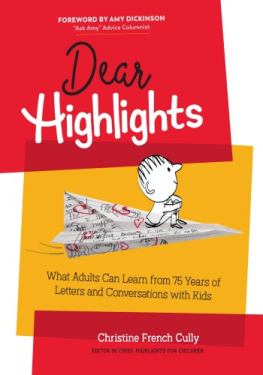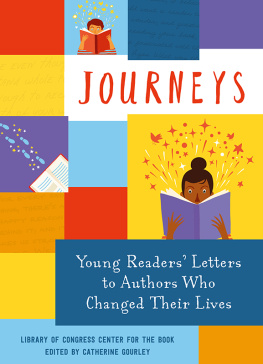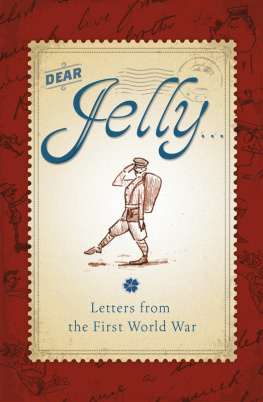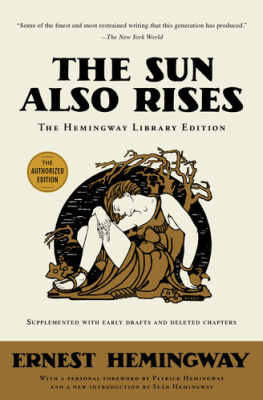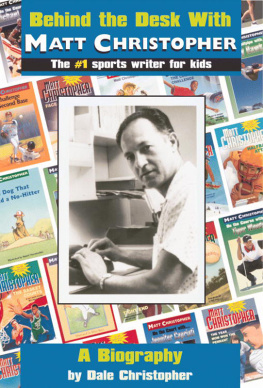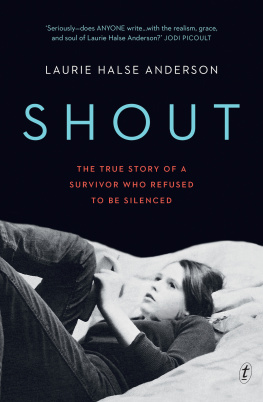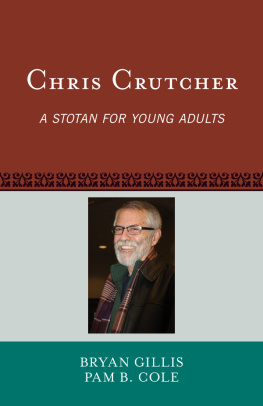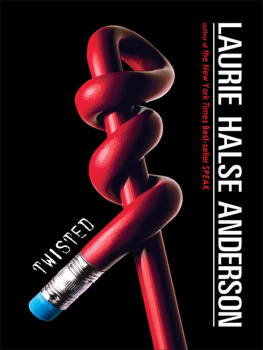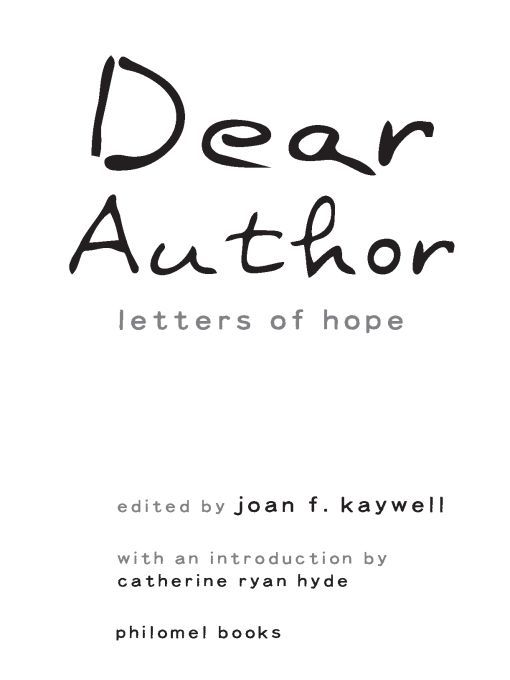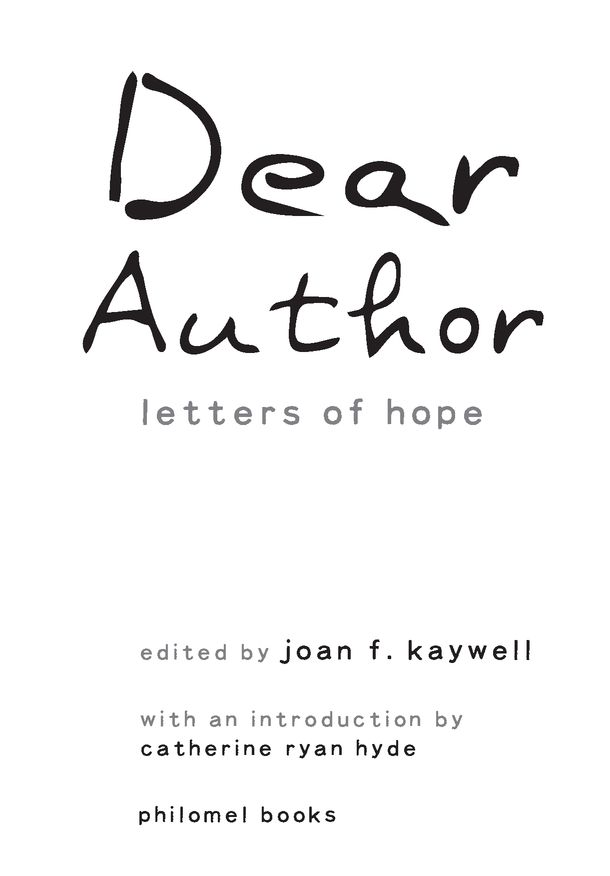Table of Contents
the letters in this compilation have been edited to protect the identity of their composers
To my son, Stephen Matthew Kaywell,
my hope and joy
To these authors, who dare to write
about tough issues in hopes of
helping those who read about them
To well-intentioned censors of these authors,
that they come to realize these books save lives
and are not the problem
And to Michael Green and Courtenay Lewis
for not giving up on me!
In Memory of Ted Hipple
1935-Thanksgiving Day 2004
ALAN and the Authors Wish You Well Eternally
INTRODUCTION
Now that Ive written the book Pay It Forward, a novel about a twelve-year-old boy who changes the world through multiplying acts of kindness, things have changed in my life. Now that the book has become a movie, starring Kevin Spacey, Helen Hunt, and Haley Joel Osment, everything seems to be going my way. Now that the book and movie have spawned a nonprofit educational foundation and a real-life social movement, its easy to be fooled into thinking that I know exactly who I am, and I always have.
If only my story were so simple. Heres the part you dont see.
I can still remember where I was, what I was thinking, and what I was feeling when I crossed over that invisible line. In one moment, I was transformed from a play-by-the-rules kid to someone more shadowy and difficult to define. I could have gone anywhere from therethats the problem. But the obvious direction seemed to be down.
The setting was a classroom. I remember where I was sitting. I can visualize the blackboard to which I probably seemed to pay attention. I remember the teacher but not her name. She was in a bad mood. She abused and embarrassed me in front of my classmates, not because I had misbehaved, but because she was fed up with the whole class and looking to make an example of someone.
I was eleven years old.
The moment hit me like a wave, and washed me under, and turned me over a few times, andlike a person who has been tumbled in the deep waterI felt a palpable loss of direction. I knew if I headed for the surface, it might not be the surface at all. It might be the bottom. Nothing was written in stone anymore. There was nothing in which to invest faith. I felt in that instant that everything I had been taught was a lie. I wasnt going to play by the rules grown-ups had taught me, not anymore. Because they didnt work, I might just as well write my own.
I had becomethough we didnt use the phrase way back thenan at-risk youth.
Of course, this moment wasnt as sudden or isolated as it seemed. Many years of alienation had added one straw after another to my back. This straw wasnt even the worst. It was, however, the last.
Home had always been a battleground. And, like most battlegrounds, each combatant was preoccupied with his or her own survival. I had a sense that I could disappearfiguratively, of courseand no one would notice. And, in a figurative sense, I did disappear, at quite an early age.
My peer group had long been brutal in their treatment of me. I seemed to invite them to abuse me in some way I couldnt recognize and untangle. I wore dark clothing and sat in the corner, hoping to become even more invisible. Attention had long ago taken on a distinctly negative connotation.
By the time I hit high school I found cigarettes, alcohol, drugs, and a circle of friends with attitudes to match my own.
Where I might have ended up without Mr. Horowitz, I cant say.
Lenny Horowitz was my sophomore English and creative writing teacher. He was only about ten years older than the class. He had a full beard. He got us reading novels and plays written in this century, peopled with characters far to the left of mainstream. He made us write. He let me call him Lenny. He stayed after school for half an hour or so, anytime I felt like talking.
One day Lenny read my essay out loud in front of the class. It was intended to be a humorous piece, which is always risky. Everybody laughed, including Lenny. He told the class my work was clever. Later I found out that he went back to the staff lounge and told all my other teachers I could write.
He told me I was good at something. And I respected him, so I believed him.
Id love to tell you that my life turned cleanly around on that day. Id love to say I charted a course and straightened myself out. But we all know life is not that easy. I had to invest two decades in fighting my way out of drug and alcohol abuse and other related troubles. I was nearly thirty-four by the time I got clean and sober. But for those twenty years I had something, something without which I might not have survived. I had a dream of something I thought I could be, planted by someone who believed in me.
It took me nearly two years to put my head back on straight and clean up the wreckage of my past. Even then, I might not have seized that dream, if not for Harvey.
Harvey was another recovering alcoholic. I was between jobs, looking to make a real change, embark on a new career. Harvey and I were discussing my possible employment options when he looked me in the eye and said, You strike me as a person who could do just about anything you set your mind to. I respected Harvey, so I believed him. I looked at myself through his eyes, saw myself as Harvey saw me. I decided that if I could do anything I set my mind to, Id do what I had always wanted to do. I became a full-time, working writer.
Noweight books, fifty short stories, and a dozen years laterI travel this country and others, talking to students on behalf of the Pay-It-Forward Foundation. Ive delivered a message to more than 50,000 students so far, ranging from first grade through college, but usually middle and high school. The message is simple: I tell them they are powerful. That they are just as capable as adults, if not more so, at seeing the world for what it is. I tell them theyll be running the world soon, but they dont have to wait to make an impact. I dont just talk to them, though. I also get them talking, and I listen. They always seem surprised.
I tell them they can change the world with simple acts of kindness.
Do they believe me? Thats hard to say. Often they go home and tell their parents what they heard. Sometimes they come up and shake my hand afterward. Sometimes they write to me to thank me for something I said. Not often, but sometimes.
I dont know if this is a message of hope that can change the direction of one of these kids. But even if it only reaches one in 25,000, then the effort may well have saved a life. Because, make no mistake about it, alienation is a life-or-death issue. Somehow, much as we hate it, we live in a world where kids commit suicide, or bring guns to school and take the lives of others. Such acts of desperation can, I firmly believe, only spring from an atmosphere of complete hopelessness. Where the slightest wisp of hope exists, we humans hold out for something better, even if it seems it will take a miracle.
So, what can we say to instill hope in those who need it most?
Sometimes I think its not even so much what you say to a young person who respects you, but simply the fact that you took the time to listen and respond. It makes them feel visible, something I could have used while growing up. It makes them feel that at least one person thinks they are worth the effort and the time.


